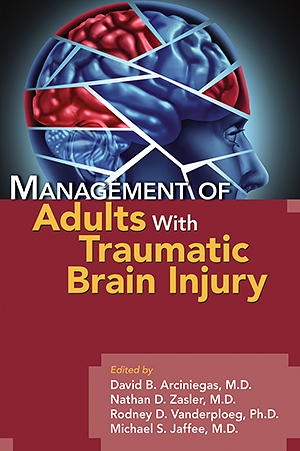Chapter 9.Posttraumatic Psychosis
Sections
Excerpt
Psychosis is a broad term, usually referring to any psychiatric disorder in which there is a loss of reality testing, which is generally reflected by the presence of delusions, hallucinations, and/or severe thought disorder and may entail serious behavioral disturbances. In individuals with traumatic brain injury (TBI), reports of psychosis have included cases that would meet criteria for delirium, schizophrenia, schizophreniform disorder, delusional disorder, bipolar disorder, or major depression. The greatest interest, however, has been generated by the association between TBI and schizophrenia-like psychosis (Krafft-Ebing 1868), and this is the focus of this chapter. The most important question is whether TBI predisposes an individual to schizophrenia or schizophrenia-like psychosis. If this association can be unequivocally established, a number of other issues become relevant, such as the prevalence of schizophrenia-like psychosis following TBI, its clinical features, risk factors, and prognosis. An important corollary is whether the study of schizophrenia-like psychosis following TBI can advance the understanding of the etiopathogenesis of schizophrenia.
Access content
To read the fulltext, please use one of the options below to sign in or purchase access.- Personal login
- Institutional Login
- Sign in via OpenAthens
- Register for access
-
Please login/register if you wish to pair your device and check access availability.
Not a subscriber?
PsychiatryOnline subscription options offer access to the DSM-5 library, books, journals, CME, and patient resources. This all-in-one virtual library provides psychiatrists and mental health professionals with key resources for diagnosis, treatment, research, and professional development.
Need more help? PsychiatryOnline Customer Service may be reached by emailing [email protected] or by calling 800-368-5777 (in the U.S.) or 703-907-7322 (outside the U.S.).



